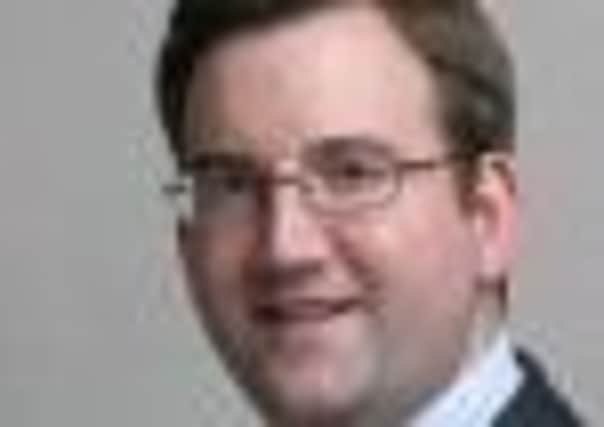Bank on brink of pumping in more money


The BoE’s Monetary Policy Committee (MPC) voted unanimously to hold fire on increasing rates but minutes from the meeting showed the Bank edged closer to resuming its asset purchase scheme, aimed at increasing the flow of money in the economy.
The deepening eurozone debt crisis, stalling UK and global economic growth, faltering consumer confidence and Britain’s austerity drive have strengthened the case for an “immediate” return to quantitative easing (QE), policymakers believe.
Advertisement
Hide AdAdvertisement
Hide Ad“For most members, the decision of whether to embark on further monetary easing at this meeting was finely balanced since the weakness and stresses of the past month had significantly strengthened the case for an immediate resumption of asset purchases,” the minutes said.
“For some members, a continuation of the conditions seen over the past month would probably be sufficient to justify an expansion of the asset purchase programme at a subsequent meeting.”
The International Monetary Fund warned this week Europe and the United States could slip back into recession unless economic problems are tackled quickly, also slashing its growth forecasts for Britain.
The IMF forecast the UK’s economy will grow by just 1.1 per cent this year, wiping 0.4 per cent from its projection in June, adding it expects the UK’s economy to grow just 1.6 per cent next year.
Advertisement
Hide AdAdvertisement
Hide AdA raft of surveys have fuelled fears Britain’s recovery is faltering, with retail sales remaining subdued, the service sector slumping and exports weakening.
The MPC’s minutes revealed it even considered cutting interest rates below their current record low of 0.5 per cent, but members decided this would not be preferable to further QE.
“Any interest rate hike has completely disappeared from the Bank of England’s radar and it is unlikely to re-appear for some considerable time to come given the economy’s softness,” said Howard Archer, economist at IHS Global Insight. The MPC voted eight to one in favour of holding QE at its current level of £200bn. However, external member Adam Posen reiterated his call to boost the stock by another £50bn.
The BoE earlier this week defended QE and said its action in 2009-10, mainly buying gilts, significantly boosted the economy.
Advertisement
Hide AdAdvertisement
Hide AdYorkshire Bank economist Tom Vosa said the BoE may resume purchasing assets in November.
“Given that UK and global growth has continued to stumble through September and that financial pressures are much greater, it seems clear that some members could switch to vote with Posen in October,” he said. “But that does not mean that we are likely to see a majority.
“Clearly a QE vote is not quite yet a ‘done deal’ but we are moving closer towards it. November at the earliest, but February is also possible should some wish to wait until VAT drops out of the annual inflation rate.”
BoE chief economist Spencer Dale yesterday reiterated the likelihood of a further injection of QE in a speech, adding the outlook for the economy had weakened materially over the past few months.
Advertisement
Hide AdAdvertisement
Hide Ad“If the economic situation continues to deteriorate, some additional loosening in monetary policy might be needed,” he said to manufacturers in South Shields.
The BoE sees inflation topping five per cent later this year falling in 2012 as the effects wear off from higher fuel and food bills and this year’s VAT sales tax hike.
The BoE minutes said those voting for unchanged policy in September had seen some merit in waiting to see how overseas action unfolded.
A way of boosting the economy
WHETHER labelled quantitative easing, asset purchasing or printing money, this direct intervention by the central bank is a way of boosting the economy.
Advertisement
Hide AdAdvertisement
Hide AdIt does not actually involve printing more banknotes. Instead, the Bank electronically creates more money, and uses it to buy assets. This is typically high-quality government and company debt held by insurance companies, pension funds and banks. Asset sellers then have more money to spend, resulting in asset prices rising as demand for them increases. Higher asset prices mean lower yields, bringing down the cost of borrowing for businesses and households.